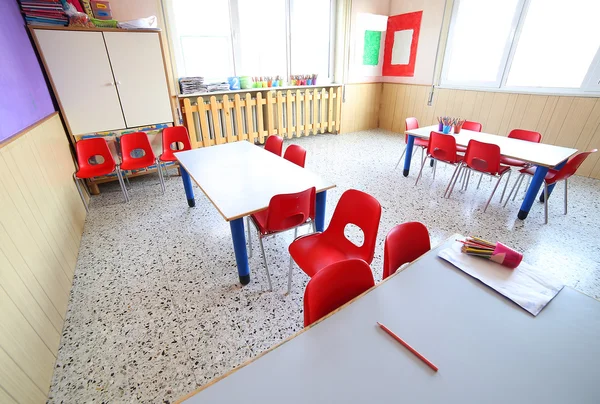
Missouri voters on Tuesday rejected an attempt by lawmakers to exempt child care facilities from paying property taxes, an incentive supporters hoped would help with the state’s day care shortage.
When the Associated Press called the race at 10:30 p.m., more than 54% of Missourians had voted against amending the Missouri Constitution to offer the property tax exemption. It’s one of several attempts by lawmakers in recent years to take action on the state’s shortage of child care facilities.
“This is just one incentive to try to make that easier for the facilities,” state Sen. Travis Fitzwater said during a committee hearing on the bill last year.
According to the language on voters’ ballots, the exemption was “intended to make child care more available, which would support the well-being of children, families, the workforce and society as a whole.”
An investigation by The Independent and Muckrock found nearly one in five Missouri children lives in a “child care desert,” where there are more than three children under the age of six for every licensed child care slot. Some areas have more than 20 children per licensed seat or no daycare access at all.
Even in areas with plenty of licensed child care seats, staffing shortages mean facilities can’t operate at full capacity. It can be difficult to hire for child care jobs, which paid, on average, less than $12 an hour in 2021.
And while COVID relief funding poured into Missouri to help with the shortage, it largely went to ZIP codes that weren’t child care deserts, The Independent and MuckRock found.
It’s unclear how much money child care providers might have saved statewide if the property tax exemption had passed. Voters’ ballots said local governments were unsure what the fiscal impact might be to their budgets.
But the hope for supporters was that saving child care providers money might help with the shortage.
“It’s going to take an all-of-the-above approach to tackling the child care crisis,” Heidi Geisbuhler Sutherland, a lobbyist for the Missouri Chamber of Commerce and Industry, said in a hearing last year.
When the legislation came before Missouri lawmakers, it had support from an array of child care and economic development organizations, including the chamber. Geisbuhler Sutherland said business owners have told the chamber that the lack of child care makes it difficult for companies to find workers.
Missouri lawmakers have considered an array of options to deal with the child care shortage. This spring, Gov. Mike Parson pushed a package of child care tax credits, but the legislation stalled in the Senate because of ultra-conservative opposition to “welfare” or the attempt to “give away free child care.”
Parson called for the tax credits in his State of the State speech in January, noting Missouri had enough licensed facilities to serve just 39% of children, and proposed a budget that increased child care subsidies by $51.7 million.
He said: “It’s time for change.”
Nina Hampton of Columbia voted at American Legion Post 202 and opposed the child care property tax amendment.
“Corporations are paying off the politicians,” she said. “The poor guy keeps paying and paying but the corporations get everything.”
The Independent’s Rudi Keller contributed to this story.
Missouri Independent is part of States Newsroom, a nonprofit news network supported by grants and a coalition of donors as a 501c(3) public charity. Missouri Independent maintains editorial independence. Contact Editor Jason Hancock for questions: info@missouriindependent.com. Follow Missouri Independent on Facebook and X.
Recommended: Missouri voters approve amendment requiring more police spending for Kansas City
Recommended: Ernie Trakas loses reelection bid, Missouri Amendment No. 4 passes and other results for the Aug. 6 primary races


